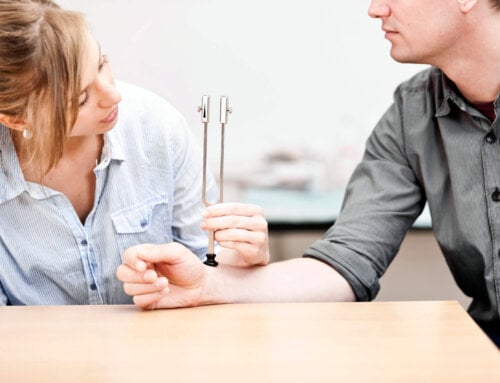According to The Academy of Sleep Medicine “almost 1/3 of American adults complain they can’t fall asleep, stay asleep or wake up too early in the morning unable to fall back asleep”. These 3 main types of insomnia usually have different causes. The first type is getting to sleep and causes include unresolved stress, anxiety, “a mind with racing thoughts that can’t shut down”, eating a big meal prior to bedtime, exercising vigorously shortly before bed and being exposed to blue or white light(electronics) before bed. The second type is being unable to stay asleep and for these cases, the causes include medical issues such as having uncontrolled diabetes and needing to urinate several times a night, having an enlarged prostate which increases bedtime urination, having GERD which can result in heartburn, pain and discomfort when lying down after a meal, sleep apnea which causes the patient to stop breathing and wake up several times a night and assorted chronic pain which can wake you out of a deep sleep. People with diabetes often suffer from chronic pain due to peripheral neuropathy which makes staying asleep almost impossible. They can experience a tingling, burning, pins and needles sensation and numbness along with restless leg syndrome making it more difficult for them to stay asleep. Other aches and pains including arthritis, spinal stenosis, headaches, sciatica and cervical neck pain can make getting a full night of sleep a challenge. The third most common sleep disorder is getting up too early and not being able to fall back asleep. This occurs because of added light, excess noise, heat and depression. “Chronic insomnia can increase death from all causes more than 3 times than in those who have normal sleep patterns”. There is “healing power” in sleep. Insomnia results in $63 billion in lost productivity each year in our country. Let’s explore what can be done:
What does insomnia cause?
Insomnia can increase your risk of hypertension, heart disease, diabetes due to raising insulin resistance, obesity, is a possible link to dementia, depression, anxiety, infections, medical errors caused by personnel, personal accidents like slipping, tripping and falling, motor vehicle accidents, making poor choices, having poor judgment and a heightened need of “craving junk foods to eat more sugar and caffeine to provide energy from lack of sleep”. Insomnia decreases a hormone named Leptin which is a fat-regulating hormone and raises Ghrelin, a hormone that stimulates hunger. These hormones play a significant part in weight gain and overeating. This hormone discrepancy often occurs with diabetes and drug companies have created diabetes medications and injectables which target these hormones called GLP1 and DPP4 medications. Talk to your health care provider to see if these medications can help you.
What can you do to help prevent insomnia?
According to The Mayo Clinic Sleep Disorder Center “3 things worth reducing to get a better night’s sleep are less caffeine, less alcohol and elimination of smoking”. All 3 increase agitation and heart rate which makes it difficult to fall and stay asleep. Some people think that an alcoholic drink or two before bed actually helps them sleep since it acts like a depressant but it causes fragmented sleep with many periods of restlessness, dehydration and increased heart rates.
Electronics.
One of the easiest ways to encourage improved sleep is to turn off all electronic devices a full 2 hours prior to bedtime. This includes TV, Ipads, Ipods, computers, tablets, Kindles and cell phones. These light emitting devices reduce melatonin secretion, change your Circadian rhythm, lower your REM (rapid eye movement dream phase) and increase your brain activity. Try to keep them out of the bedroom.
Have vitamin D levels checked.
There is recent information “linking low vitamin D with insomnia”. Talk to your physician to see if you need supplementation. Many people have trouble absorbing vitamin D tablets and respond better to liquid vitamin D. Have your blood level checked. Getting 15 minutes of natural sunlight without sunscreen is also helpful to boost vitamin D levels.
Exercise.
As with controlling diabetes, exercise is an excellent way to help reduce sleep issues but must not be done around bedtime. Allow at least 2 hours for winding down prior to sleep. Any aerobic activities such as walking, swimming, running, biking, classes or DVDs are encouraged to promote better sleep if done early in the day. Exercise eliminates toxins and gives you time to think while in motion. Take advantage of this as it may allow for a clearer head at bedtime. Always consult with your physician before starting a new exercise program especially with diabetes.
Schedule.
As with eating on a schedule when you have diabetes, staying on a sleep schedule really helps your body get the rest it needs. Try to go to sleep around the same time each night and wake up around the same time each morning. Even on weekends and vacations, if you can, stick to a sleep routine your body will quickly adapt and be ready for sleep.
Routine.
Have a glass of warm milk or half a turkey sandwich to establish a nightly routine since you already need a bedtime snack when you have diabetes. As an added bonus, the tryptophan in turkey may aid sleep. Taking a warm bath before bed is a great bedtime ritual because a warm bath immediately raises your body temperature but when finished allows the body temperature to decrease which is more conducive for sleep and signals bedtime. Add mineral salts which contain magnesium or Dead Sea salts to help relax muscles. Drink a cup of herbal tea such as passion fruit, sleepy time tea or Valerian tea to help you wind down. Try a cup of decaffeinated green tea which according to Cleveland Clinic “may contain theanine which is a natural substance that decreases anxiety, increases relaxation and promotes sleep”. Make sure your bedtime snack is not spicy or loaded with carbohydrates which can keep you wide awake. If you drink caffeine avoid it at least 5-6 hours prior to bedtime.
Aromatherapy.
Purchase or learn to make your own essentials oils from plants, flowers and trees. Lavender is especially calming and helps without causing daytime fatigue like OTC sleep aids. You can purchase lavender bath salts, lavender soy candles, shower gels, body and hand creams as well as lavender tea. You can also use lavender bed linen spray on your pillow case or sheets for a calming and relaxing affect. Chamomile is another herbal oil to be used at bedtime in a diffuser. There are diffusion wafers that can add fragrance to the room and even aromatherapy devices to place in CPAP machines which are worn by people with sleep apnea.
Darkness.
You should sleep in total darkness with either an eye mask that is lightweight and well fitted or use black-out shades. Turn alarm clocks with a back light around or place 3 feet away from the bed since even low light may disturb sleep. Never turn on an overhead light during the night. Instead use a nightlight that contains a low wattage red, yellow or orange bulb which affects sleep cycles less than white or blue light.
Temperature.
Turn the temperature down to at least 70 degrees although 60-68 is considered optimum sleep temperature. You should not feel cold but if you do grab another lightweight blanket or put on a pair of socks just to warm your feet.
Magnesium/Melatonin supplement.
Ask your health care provider if a magnesium or melatonin supplement is right for you. The magnesium dosage should be between 500-1000mg daily. It may help alleviate leg cramps and induce sleep. Too much magnesium may cause diarrhea. Melatonin remains controversial and may interfere with prescription medications.
Natural light during the day.
Research shows that getting about an hour of natural light during the day, such as regular sunshine, helps with your Circadian rhythm and melatonin levels. The best time for sunlight is noon but work around your own schedule. It is easier during this time of year to get proper light since the days are longer.
Sleep therapy.
CBT or Cognitive Behavioral Therapy is now recommended by The American College of Physicians. There are no side effects and “it may help people change their thoughts and behavior towards sleep”. This therapy should be individualized. Look for a therapist in your area who can help you.
Music therapy.
Music therapy may balance brain activity, fight depression and insomnia. Check out a website called “Insomnia Land” to get ideas. The specific rhythm should be about 50-60 beats per minute for relaxation. Try to wake up naturally instead of blasting an alarm but if that isn’t possible then wake up to soft and melodic music.
Pray or Meditate.
Pray or meditate to reach a peaceful place prior to sleep. Resolve the days’ issues before bed.
Bed is for sleeping.
Try to reserve your bed for only sleep and do your reading, eating, snacking, computer or TV watching in another area, chair or room.
Get up.
If you are in bed for 20 minutes without falling asleep get up and move to another room. Try reading for awhile or just sitting until you become tired. Deep breathe and visualize. Tossing and turning hour after hour is not helpful to sleep. Practice this until you feel tired.
Medications for pain.
If you suffer from peripheral neuropathy consider talking to your doctor about Lyrica, Neurontin or Cymbalta to help relieve symptoms. Be aware that all of these medications may have side effects but it could be what you need for pain relief. Talk to your MD about taking Alpha Lipoic Acid 100mg twice a day to see if it slows the progression of your neuropathy.
Hypoglycemia.
Make sure to test blood sugars prior to bedtime to help prevent nighttime lows. Eat a snack containing protein and carbohydrate 30 minutes before sleep and make sure you keep glucose tablets by your bedside for emergencies. Hypoglycemia may cause night sweats, anxiety and nightmares with chronic interrupted sleep.
Sleeping pills or aids.
If none of these things seem to help with your sleep, do speak to your physician about sleeping pills. Nearly 9 million Americans take sleeping pills with the majority being elderly, age 80 and above. Sleeping pills have been known to cause depression, increase the risk of diabetes, cause sleep walking and sleep eating as well as disorientation and increased risks of falling. Sleeping pills should be used for the shortest period of time since they can become habit forming and you will eventually need more due to building up a tolerance.
Sleep specialists consider both the quantity of sleep as well as the quality. They have termed this “sleep architecture”. You need to have the proper amount which is generally between 7-8 hours for most adults and enough REM (dream sleep) verses NREM (non-dream sleep). Sleeping pills generally mess with the NREM and REM amounts and often cause morning grogginess. Sleep matters for all of us, but especially when you are trying to take control of your diabetes too!
Always feel free to email me your questions at [email protected] if you would like to share them with ADW diabetes.
NOTE: Consult your Doctor first to make sure my recommendations fit your special health needs.












Leave A Comment